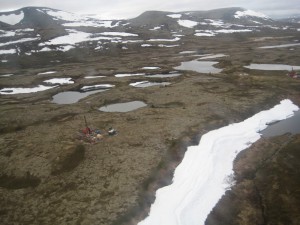A few years ago, the U.S. Environmental Protection Agency (EPA) made a splash when it took unprecedented early action in an effort to derail the development of one of the largest domestic deposits of key strategic mineral resources (Copper, Molybdenum, Gold, Silver and Rhenium) – the so-called Pebble Deposit in Southwestern Alaska. In spite of the fact that no permit application or specific plans had been submitted, the agency released a cursory review of the Bristol Bay Watershed in Alaska which sounded the alarm on the possible impact of hypothetical mining – even though previous EPA assertions of such preemptive power had been rebuffed in federal court.
The EPA’s decision to preemptively veto the project before any application had been filed represented a unilateral expansion of EPA powers under section 404(c) of the Clean Water Act.
Now, in a course reversal and big victory for due process advocates, the EPA under its new administrator Scott Pruitt and Canada’s Northern Dynasty Minerals has settled the long-standing dispute, which had culminated in 2014 with a lawsuit over the EPA’s decision to block development of the Pebble Deposit.
ARPN followers may recall that ARPN consistently argued in favor of due process and warned against effectively allowing the EPA to grant itself ultimate authority to derail any project in the United States that touches on water — with potential impact for projects in every sector of the US economy, from mining to farming, manufacturing, building, energy, and water treatment.
Announced earlier this month, the settlement now reached affords the Pebble Limited Partnership the opportunity to apply for a permit from the U.S. Army Corps of Engineers under the Clean Water Act, after which point the EPA could move forward with its Clean Water Act process to “specify limits on the disposal of certain material in connection with the potential “Pebble Mine.”
Says EPA Chief Pruitt:
“We are committed to due process and the rule of law, and regulations that are ‘regular.’ We understand how much the community cares about this issue, with passionate advocates on all sides. The agreement will not guarantee or prejudge a particular outcome, but will provide Pebble a fair process for their permit application and help steer EPA away from costly and time-consuming litigation. We are committed to listening to all voices as this process unfolds.”
Whether or not the deposit will ultimately be developed remains to be seen. However, with rigorous environmental review standards and processes already in place, it is encouraging to see that the EPA is returning to merit-based evaluation of actual projects within the given legal and regulatory framework, rather than relying on vague hypotheticals to derail potential mining projects before they even present a mining plan for formal review.
And while the settlement stands as a win for due process, friends of ARPN will appreciate the bittersweet aspect of a “victory” that ran six years off the clock on the Pebble project, allowing the project to do in 2017 what it had hoped to do in 2011. During that time, U.S. dependency has deepened for some of the very metals and minerals Pebble might bring to market. And for the company that optioned the Pebble deposit in 2001, after 16 years, they’ve arrived at the permitting starting line.





